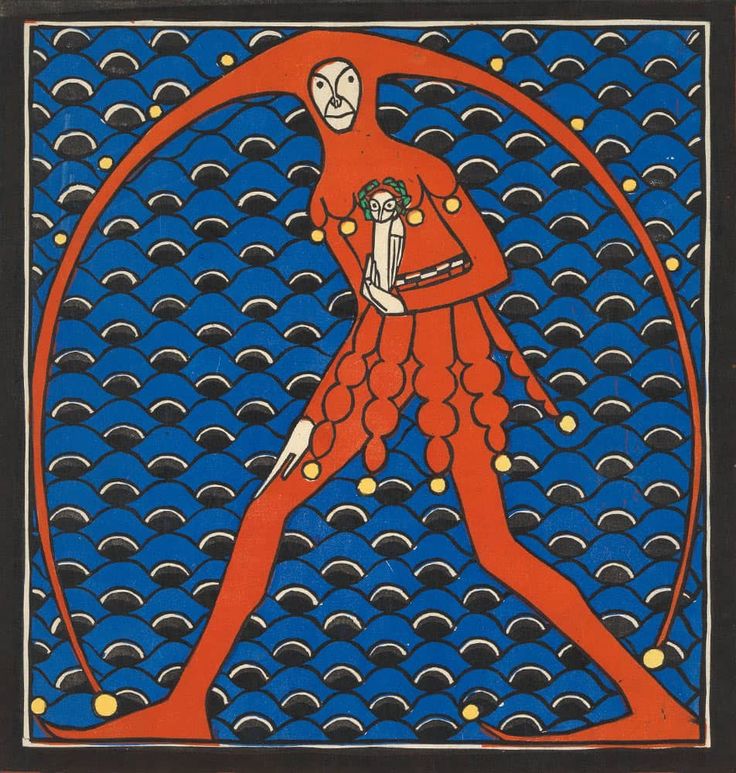
14 minute read
Coach, grandma or fortune cookie: who gives better guidance?
By Dr Anastasia Sitka
Making fun of coaches is en vogue. Especially if you live in Bali, where you can’t swing a yoga mat without hitting a 20-something-year-old who’s convinced they’ve cracked the code to your best life. Coaching here is the new yoga, and every second person you meet is some kind of a coach desperately looking for an opportunity to sell you self-improvement. And no one is immune. Just the other day I cringed at an ad in a cafe: ‘Kids life coach. Ages 6 - 10’. What’s next, Express Enlightenment for Toddlers? Why the cringe though? Am I now a member of the old generation, resisting progress like repressed Baby Boomers for whom the thought of therapy was an unthinkable insult? Or is there something wrong with the coaching industry itself?

First things first, how did we get here? The profession of life coaching finds its roots in the human potential movement of the 1960s and 1970s. This movement was defined by its emphasis on personal growth, self-realization, and the exploration of life’s possibilities. It encouraged individuals to break free from limitations, delve into their inner selves, and actively pursue their goals and visions. It wasn’t until the 1980s that life coaching began to emerge as a full-time career. The field quickly gained momentum throughout the 90s and 2000s, rocketing self-help gurus like Bob Proctor and Tony Robbins to celebrity status. Coaching books debuted as bestsellers. Speaking events sold out. Coaching became the career to aspire to.
While the concept of life coaching is relatively modern, the desire for self-improvement and the need for guidance in achieving it has existed throughout human history. In the past, we sought this support from our families and communities. Outside of our immediate circle, we relied on trusted authority figures like priests, shamans, village elders, fortune tellers, and witches. But as a strong sense of individualism overtook collective life, modern family and social structures thinned out, leaving us bereft of the inherent, inbuilt support systems so integral to our self-development and growth. Welcome to late-stage capitalism, where emotional support and encouragement are commodified.
Instead of learning how to play nice with each other and develop deep long-lasting relationships, we’re pushed into career-focused trajectories, aspiring to earn more so we can pay someone to care about our problems. Today we have to pay for a listening ear. To be allowed to merely sit around the fire with other (paying) ‘sisters’. We must pay to gaze into each other’s eyes. One relationship coach, who preferred to stay anonymous, suggested that coaches are healing broken families and communities. Perhaps. To me, it sounds like coaching contributes to the problem more than it solves it. After all, if the industry was looking out for the emotional needs of a disenfranchised society, we would see more attempts at building genuine communities. In reality, numerous group workshops, women’s circles, and Facebook and WhatsApp groups led by coaches tend to act merely as funnels towards more lucrative courses or 1-on-1 sales. And amidst the growing competition making a sale (aka monetising your passion) is becoming a coaches’ main concern.

Taylor says she came to coaching naturally. She noticed that friends came to her for advice, and she was often complimented for being a good listener and sparking big life changes. A quick online course later, she became a Freedom Coach, guiding those who want to leave their full-time jobs in favour of the freelance dream. Her network of friends and friends-of-friends kept her going for well over a year. But as it ran dry, a hard reality hit. If Taylor were to keep funding her comfortable digital nomad life (complete with plush villa, pool, expensive cocktails, and regular bottomless brunches), she needed to keep the income flowing. Her work became less about helping people and more about making sales. Today, she finds herself disenchanted. “Most of my working hours are spent making social media content and figuring out how else I can increase my visibility. This is not what I came here for. But I have bills to pay. It’s the same trap that held me in my corporate job for so long”.
You don’t see this side of ‘living the dream’ on a coach’s upbeat Instagram feed, which often presents, if not a lie, then at least a carefully orchestrated show. While some are comfortable documenting their lives and churning out content on social media, others feel they have to compromise authenticity in order to keep covering the bills. This is how we end up with identical-looking accounts and offerings. Platforms are overrun with everyone following the same winning formula for making a sale. It starts with a bio: I’m a ‘insert your specialisation’ helping ‘insert your target audience’ with ‘insert the pain point’. And continues into ‘authentic shares’: Here’s me dancing all free and wild. Here’s me crying vulnerably. Here’s me being effortlessly sexy. And don’t forget an obligatory call to action. Would you like to be like me? Hurry up. Only 2 spaces left at my upcoming goddess 1:1 mentorship. In an oversaturated market, coaches turn to survival tactics to keep turning out a client base. Aggressive sales techniques are common. Pretty marketing slogans that speak to your pain points, engaging videos, and magnetic charm are all tools taught in the standard marketing courses for coaches. So remember, clicking with a coach might be genuine, or you might be hearing exactly what they want you to hear to agree to a purchase

Still struggling to stand out online? Go niche. Coaches are taught that a narrower focus makes it easier to attract clients. Hence, the kids coaching, authenticity coaching, soul purpose coaching, time management coaching, confidence coaching, storytelling coaching. However, the division into these neatly defined specialisations is arbitrary and unrealistic. It’s a wild oversimplification to assume that our problems can be addressed in isolation, one by one. Just like issues with our physical bodies, psychological and behavioural difficulties are intricately related. And so a creativity coach finds themselves advising on clients’ mental health. A storytelling coach works with stage fright. An overwhelming majority of coaches I interviewed for this article, when pressed, admitted that they rarely decline a potential or refer an existing client. It’s hard to redirect money from your pocket, even with the understanding that, in many situations, the expertise of a trained therapist may be more appropriate. Further, such abundance of help is confusing. In almost a decade of living in Bali, I’ve seen my fair share of spiritual and self-growth burnout. It’s like watching a dog chase its tail. Constant bombardment with numerous options for self-improvement plants the idea that we should continuously seek ways to enhance ourselves. In theory, coaching is beautiful, isn’t it? It focuses on ‘unlocking a person’s potential to maximize their performance’, and encourages clients to ‘acknowledge their creativity and find their unique solutions by developing self-awareness and being goal-oriented’.
Many see coaching as a more hip cousin to therapy. Stigmatised, therapy is for the broken ones. Coaching, meanwhile, is sold as a modern solution for sexy biohackers.
What’s not to like? However, we don’t ALWAYS need to be thinking about reaching our maximum potential. If anything, we as a society have become too goal-oriented! Chances are, you don’t need a coach to do better. Rather, you need to figure out why you are obsessed with doing better. Learn to cheer yourself on, to hold yourself accountable and keep yourself motivated. For some people, having a coach to model these behaviours and have some objective support navigating life is sufficient. However, many experience difficulties with these foundational skills as a symptom of a deeper underlying issue. Engaging with niche coaching gives clients the perception of making incremental progress while circling a fundamental and persistently overlooked core issue. Lacking a deep knowledge of psychology, coaches tend to stick a pretty band-aid on your problems and be done with it. Isn’t that a waste of time and money? Isn’t it frustrating and detrimental to one’s self-esteem to keep working around a problem that will only continue to resurface? Coaching clients often end up learning a couple of tricks and some psychological lingo (like ‘wounded child’ or ‘gaslighting’), then walk away genuinely believing they are, if not healed, then at least massively recovered.
Coaching purists maintain that it’s not the coaches’ job to fix the problem. Vix Anderton, a Bali-based perfectionism coach, proposes that coaching is more about how you get on with your life given the problem. What positive steps can you take right now? Coaches, she reminds, do not teach or advice, they ask open questions helping you to see blind spots. However, she is a delightful minority. A quick search on social media shows that coaches do sell “healing”; they do promise to address the root of your problems and transform your life. And how many prospective clients are aware that coaches are not supposed to give advice or speak about their experiences? That coaching is supposed to happen only through open-ended questions? Many see coaching as a more hip cousin to therapy. Stigmatised, therapy is for the broken ones. Coaching, meanwhile, is sold as a modern solution for sexy biohackers.

Interestingly, coaches often gravitate toward niches that mirror the very struggles they themselves are grappling with. This is problematic for several reasons. First, it seems that now people have a life experience, and then throw the word ‘coach’ in front of it. I went through a break-up. Now I’m a break-up coach. I had a baby (#blessed). I now help overwhelmed mums to thrive… There is often a dangerous assumption that the client is the same as the coach. The “I-did-it-and-so-can-you” approach is inappropriate when it comes to something as complex as human behaviour. Encouraging clients to follow in your footsteps ignores potentially significant differences in neurology, biochemistry, upbringing, history, goals, and values. Second, coaches often end up saying what they themselves need to hear. I have had plenty of coaches coming for psychology sessions to help deal with an issue, while at the very same time promoting themselves as the solvers of that exact problem.
Which brings us to an interesting question: how ‘healed’ do you have to be to heal others? Can you teach solutions to the problems you’re actively struggling with? Somewhat struggling with? Sometimes struggling with? In the coaching industry, it’s all a grey area. Some say that former drug addicts make the best recovery coaches. They intimately know the pain, the pitfalls, and the relapses. Anna, a mindful nutrition coach, has struggled with eating disorders and occasionally relapses. In her mind, “You only need to be one step further than your client. Not even 3. When you are too far ahead, you forget what it was like back then. You can’t relate anymore. Being close to their pain makes me more sensitive and able to help”. Perhaps whether or not this is acceptable hinges on disclosure. What if there is 100% transparency and consent? Is it okay then for the coach to be healing together with a client? Even if the answer is ‘YES’, how likely is 100% transparency given the high pressures of making a living? Without anyone checking on you, would you be able to resist the temptation to fib here and white lie there if full disclosure carries a risk of losing the client and not making the rent this month.
Without anyone checking on you, would you be able to resist the temptation to fib here and white lie there if full disclosure carries a risk of losing the client and not making the rent this month?
The solution seems clear: such temptations are best addressed by governing bodies who set standards, educate, train and monitor. Yet the International Coach Federation (ICF), one of the largest and most recognized coaching organisations estimates that out of approximately 4.38 million coaches worldwide, only 71,000 are certified. Less than 2%.
So why don’t more coaches pursue certification? Perhaps due to skepticism about its value and its associated costs. Many critics argue that ICF and similar organisations prioritize their financial gain by pushing expensive courses and accreditations. Moreover, some coaches find organisations like IFC overly prescriptive, limiting their ability to provide personalized and effective help. “You are basically told which models to follow, which conversation scripts to apply. How am I supposed to help people, I mean really help, if I’m just regurgitating the same couple of lines I received in training?” asks Jenny, a confidence coach, who received her psychology training as part of her Masters and PhD in psychology. “Besides, most models are a joke. It’s usually some kind of simplified cognitive behavioral model with some power of positive thinking thrown in.” Some courses offered by IFC are remarkable, but interestingly, the basic coaching accreditation program lacks any mental health training. There is, however, a marketing module. And so instead many turn to other seemingly successful coaches for training.

Once you complete a course created by another coach you will receive a certificate printed on their home printer. You can now officially proclaim yourself to be certified. My husband is also certified. I once gave him a certificate for the honorary title The Silliest. Maybe we too should open our own school, the silly school, and mint certified silliness coaches. The saddest thing is, the silliness courses would probably sell.
Of course, nothing is black and white. While there are serious issues with the coaching industry, working with a coach has the potential to be profoundly lifealtering, or at least helpful in addressing a particular issue. Tanya, a trauma coach, proposes a Hole vs Mountain metaphor to gauge whether coaching is right for you.
If you find yourself in a hole of emotional distress, self-doubt, or anxiety, a therapist might be a better choice because they’ll aid you in addressing the underlying issues. If you are already on solid ground and would like to go higher, coaching can serve your needs well.
Then which coach to choose?
There’s no one-size-fits-all answer. For some, recognised certification is an important criterion. Others prefer coaches with an academic background, a guarantee that they endured years of rigorous training instead of a weekend course.
Be clear about what you expect from the coach. Do you want them to follow the purist model of coaching that allows only openended questions in sessions? Do you want advice? Do you want to get to the root of the issue, or do you need to take it slow?
Spend some time researching your options and clarifying your needs. It also serves to spend some time observing the coach, being in their presence. Is this coach where you want to be? Are they happy/productive/honest (insert the value that matters to you)? Do your definitions of and reasons for this value match?
Are they selling their life as perfect? Beware of FOMO-driven advertising and larger-than-life social media personas. You might end up in a ‘Simon Says’ do-it-like-me dance.
Watch out for the pressure to sign up right then and there during a free ‘discovery call’. Slow and steady wins the race when it comes to choosing a professional to work with. Take your time and sleep on it. See if you still feel good about the prospective coach a couple of days after the initial conversation.
So yes, the coaching industry seems to crumble upon a close examination and it might be tempting to replace the purchase of life coaching session with advice from your grandma, your cat, or even that fortune cookie you got last week. Picked at random, 9 out of 10 coaches will inspire more eye rolls than aha moments. However, as the experience of writing this article showed, there are some smart, honest and helpful coaches out there. I’d treat coaching like Tinder - if you know what you want and don’t have a problem swiping left for a firm no, you can find someone who can genuinely enhance your life.
FROM THE AUTHOR
I received my Ph.D. degree in psychology with research focus on narcissism in Hong Kong, where I subsequently worked as a university lecturer and had a private psychology practice. I’ve been a regular contributor to various online and print publications. Currently I’m finishing my first book ‘Gentle alpha’, aimed at helping readers find their own rhythm towards success and happiness.








